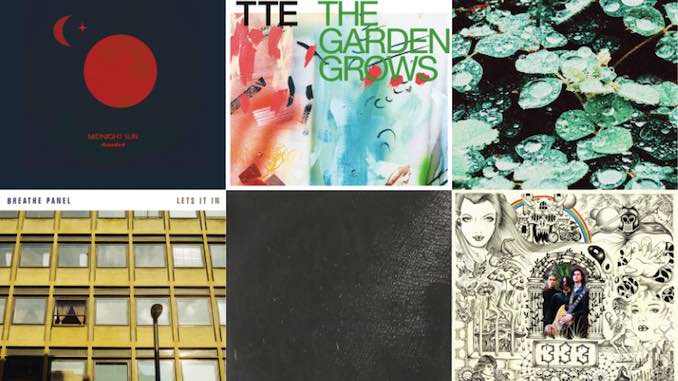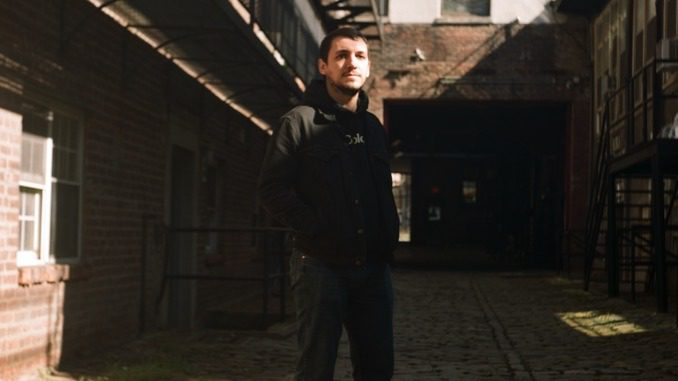Welcome to our new Gateways column, where Paste writers and editors explore the taste-defining albums, artists, songs or shows that proved to be personal “gateways” into a broader genre, music scene or an artist’s catalogue at-large—for better or worse.
Fiona Apple’s first hit also proved to be the one with the most staying power. If you need proof, just watch Lorene Scafaria’s extraordinarily entertaining 2019 film Hustlers, in which a sly team of strippers bamboozle drunk businessmen into funding their own criminal enterprise. Head mistress is Jennifer Lopez’s Ramona, who makes her entrance in the film scaling a pole to the tune of Apple’s 1996 hit “Criminal.” The scene is so perfect that I actually get upset every time I remember how Lopez was snubbed at this year’s Oscars. It’s a crying shame.
But, thankfully, awards shows aren’t the sole determinants of what’s Good, and Ramona’s debut moment in the Hustlers spotlight is still great because of the lighting, costumes (all the sequins!) and Lopez’s inhuman flexibility and impeccable pole choreography. But it wouldn’t be nearly as stunning if not for “Criminal,” which gives the scene a sultry importance. The first words in the song are “I’ve been a bad, bad girl,” but “Criminal” doesn’t feel showy or in service of the male gaze. It’s quite the opposite, actually: Much like Hustlers itself, there’s a wild female energy that runs throughout the track. Both the song and the movie are about a woman’s powers, particularly what happens when she wields her sexuality to her own advantage.
That energy courses through the entirety of Fiona Apple’s 1996 debut album, Tidal, which houses “Criminal,” as well as rousing numbers like “Sleep To Dream” and “Shadowboxer.” Thankfully, I was already a fan of Apple when I sat down in the theater about a year ago (back when moviegoing was still a viable activity) to watch Hustlers. But I still hadn’t had all that much time with Tidal.
Up until around 2017, Fiona Apple was mostly a blindspot in my musical repertoire. I knew of her and and her supposedly spotless catalogue, but I didn’t know I needed them. That changed when I listened to Tidal for the first time with intent for a yearly Twitter challenge called #MWE (Music Writers’ Exercise), in which music journalists (or anyone else who’s game!) vow to listen to a new-to-you album and tweet about it every day for the duration of February. It was love at first listen: I knew from the first time I heard Tidal—every minute of Apple kicking and screaming her way through past traumas and present romances—that it would be a favorite for life.
Fiona Apple has already been in the news plenty this year thanks to her excellent new album Fetch The Bolt Cutters, which Paste named the best of 2020 so far back in June. It’s an unfiltered account of solitude, everyday life and gaslighting, marked by fiercely feminist narratives and sensual, sweet nothings. Tidal has many of the same themes, and it turns 25 next year, which is reason enough to revisit the record if you haven’t in a while.
Apple was only 18 when she wrote “Criminal,” and she wrote much of Tidal before she even turned 17, defying all age stereotypes about silly, lovesick teenagers. Tidal is serious business, from the thirsty lust song “The First Taste” to the jazzy “Carrion.” And then there’s album opener “Sleep To Dream,” one of the best damn, angriest songs Apple has ever written. Apple has always been good at bridling her anger and directing it into music, and “Sleep To Dream” is the first instance of this pure, reckless rage. Here, she tears into someone who wronged her: “I have never been so insulted in all my life / I could swallow the seas to wash down all this pride / First you run like a fool just to be at my side / And now you run like a fool, but you just run to hide.” Oof. No one emerges from this song unscathed.
But there’s also a necessary self-confidence here. There are few lyrics as enticing to a 22-year-old woman as “I got my own hell to raise,” which Apple also offers up during “Sleep To Dream.” I was positively bewitched by this statement.
And raise hell she did. After falling under Tidal’s spell, I of course dug deeper into Apple’s other three (now four) LPs. Each is indeed close to perfect. I’d now count 1999’s When The Pawn… among my favorite albums ever made (Cold take, but “Limp,” “Paper Bag” and the outraged “Fast As You Can” are all pop masterpieces), and 2012’s The Idler Wheel… tingles with new wisdom and even more raw, experimental rock energy. Even the lesser-referenced Extraordinary Machine has blown me away plenty of times. If anything, Fetch The Bolt Cutters proves that Apple is one of the best, most consistent artists working today. It wouldn’t shock me one bit if “Cosmonauts,” “Under The Table” or one of the other highlights from the 2020 record appears in a major motion picture 20-plus years from now, just as “Criminal” still managed to hit home with audiences last year in Hustlers. While she is able to write music that is very much of a certain moment, Apple’s songs are also timeless.
But it all started in 1996, with one perfect record. Because I was still an infant when Tidal actually debuted, I wasn’t able to get my hands on it until fairly recently. But that doesn’t mean I love it any less than the gal who waited in line at the CD store to purchase it 24 years ago. Apple has not only influenced me and my musical tastes, but also countless young female artists like Angel Olsen, Waxahatchee and Soccer Mommy who write music that is fearless, honest and unconcerned with what anyone else thinks. As Apple once said, “This world is bullshit.” The music industry isn’t kind to women, so Fiona fought tooth and nail to make her own way. And I’m so thankful she did—and continues to do so.
Ellen Johnson is an associate music editor, writer, playlist maker, coffee drinker and pop culture enthusiast at Paste. You can find her tweeting about all the things on Twitter @ellen_a_johnson and re-watching Little Women on Letterboxd.




